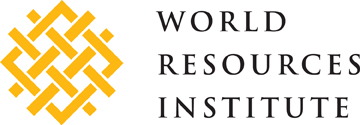Constant Emissions Improvement in an Evolving Landscape
About the Client
WRI is an international research nonprofit, with a mission to shift humanity towards a lifestyle that protects Earth’s environment and its capacity to provide for the needs and aspirations of current and future generations. Founded in 1982, the organization brings together over 1,400 experts and staff in 12 international offices. Working with partners across 50 countries, WRI operates globally to produce data-based solutions that improve people’s lives while ensuring nature can thrive.
The Challenge: Constant improvement in measuring operational and downstream climate impacts
As a co-author of the GHG Protocol, WRI is recognized as a global sustainability leader. In order to remain true to the organization’s mission and innovate on sustainability, WRI works to continuously improve its own value chain (scope 3) emissions data.
In light of widespread changes to the workplace resulting from the COVID-19 pandemic and the growing recognition of the impact of financed emissions, WRI approached Agendi with a three-fold challenge: (1) help WRI quantify their work-from-home (WFH) emissions, (2) enhance and improve WRI’s Scope 2 calculations from its operations, and (3) assist WRI in calculating, for the first-time, the invested emissions from its endowment portfolio.

The Solution: Identifying and applying new best-practice methodologies for measuring greenhouse gas emissions
To understand the working-from-home conditions of WRI employees, Agendi devised a survey to collect a detailed account of WFH office equipment, the incremental energy used at WFH locations, and the physical characteristics of the WFH space. Information from 423 survey responses were extrapolated to cover over 1,100 full-time employees across the organization’s global locations in 2020. In addition to quantifying WFH emissions, Agendi also conducted an in-depth review of WRI’s Scope 2 emissions, improving their accuracy by applying new calculations that account for WRI’s operations in eight regional locations (US-DC, China, Indonesia, Brazil, Mexico, Europe, Africa, India) instead of the previous three (US-DC, China, Indonesia). As a result of these two exercises, WRI’s understanding of its workforce’s current footprint – now shared between in-office and remote operations – has greatly improved, creating opportunities to better manage workplace emissions. Furthermore, the data from these exercises have positioned WRI to better estimate the climate impacts of future hybrid work, including what employers may want to do for home office sustainability.
To assist WRI in calculating their financed emissions, Agendi conducted a benchmark study to determine the methodology best suited to WRI’s company profile – ultimately, the PCAF Standard was selected. Published in 2020, PCAF is currently the most widely accepted harmonized approach in assessing emissions associated with financial portfolios. Using company-specific emissions data from annual CDP reports, Agendi ensured that the highest level of data quality was being used for its calculations. Where CDP report values were unavailable, industry-specific emissions factors developed by the US EPA were used instead. Between WRI’s 2019 and 2020 investment portfolios, Agendi investigated more than 2,200 companies across 15 public equity funds, which were prorated to cover WRI’s entire endowment for both years.
As attention being paid to financed emissions continues to grow, scrutiny from investors, regulatory bodies and industries grow with it. By taking the first step to assess the carbon impacts of their endowment now, WRI has demonstrated its commitment to constant improvement in understanding and mitigating its climate impacts. Equipped with the results of this engagement with Agendi, WRI can make more informed decisions about how its endowment is invested while also influencing its partners to be more conscious of their respective financed emissions.
For more information about WRI’s Sustainability Program and Sustainability Data, please visit https://www.wri.org/sustainability

